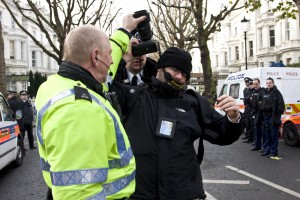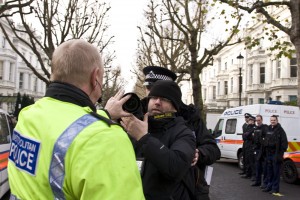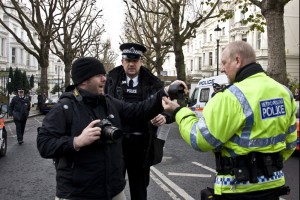Kenyan editors are demanding the government withdraws a bill from parliament that could give the state powers to raid media houses and seize broadcasting equipments at will.
Editors have described the Kenya Communications Amendment Bill 2008, also known as the ICT bill, as draconian and oppressive to a media that has previously successfully fought against the introduction of such an act.
Last year media practitioners took to the streets protesting the Media Bill 2007, which looked to force journalists to disclose their sources.
When first tabled, journalists sought the removal of sections that would bar cross-ownership of media – a move seen as an attempt to close down the nation’s largest media houses, The Nation and The Standard, which both own a broadcasting and print outlet.
David Makali, chairman of the country’s Editors Guild, has questioned why the government has hurried to enact the laws, arguing that it should concentrate on the passage of the Freedom of Information Bill that has been going through parliament for the last four years.
The Freedom of Information Bill seeks to replace the existing Official Secrets Act and improve access to public information by the public.
“Why is the government obsessed about controlling the media and seeking power to get into media houses at will, instead of freeing the ground for us to access information. What is the priority: punish media houses or inform the nation?” asked Makali.
Hannington Gaya, chairman of the Media Owners Association (MOA), said if passed into law, the repercussions of the bill, which mainly targets broadcasters, could be ‘even more dangerous’ than those from the Media Bill.
“This bill is illegal, immoral and unconstitutional. Through this bill, the information and communications minister and his internal security counterpart are working together to frustrate the freedom of press,” claimed media consultant and politician, Tony Gachoka.
According to Gachoka, the bill is meant to justify acts like the infamous raid on the Standard Group.
In March 2006, the then internal security minister, John Michuki, ordered a police raid on the Standard Group, resulting in a loss of millions of shillings.
In an unprecedented attack on the media, around 30 heavily armed and hooded police from the elite Kanga squad, ostensibly formed to fight armed and dangerous criminals, descended on the Standard’s offices at midnight, beating up employees, breaking doors, stealing employees’ mobile phones, removing CCTV cameras and carting away 20 computers.
Police officers later took broadcaster KTN TV off air for about 13 hours and disabled the Standard’s printing plant, setting light to thousands of copies of the day’s edition as it rolled off the presses.
In a phone interview information and communications minister Samuel Poghisio said the bill seeks to harmonise law and policy in the ICT industry, which is the fastest growing industry in Kenya.
The bill will be tabled in its current form, said Poghisio, adding that any further amendments will be done according to the vibrancy of the industry and that editors should await the passage of the laws in parliament to raise their issues.
“If they do not revise those issues we will seek redress in court,” responded Makali.


